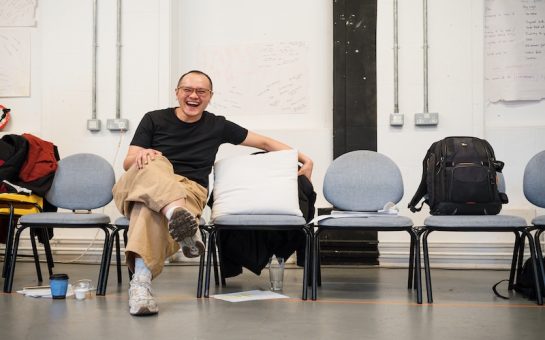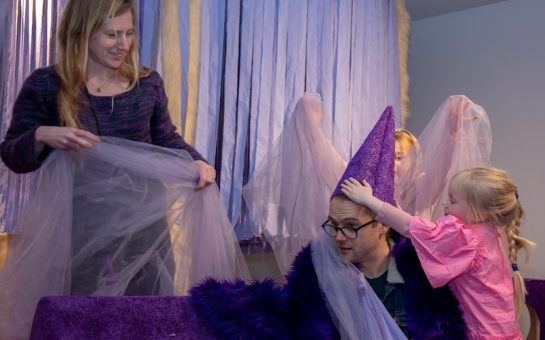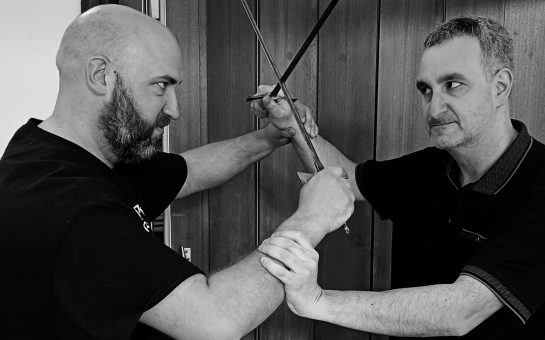Chiaroscuro is a revival of Jackie Kay’s 1986 work at Bush Theatre that explores the issues surrounding race, homosexuality and identity through conversations between four female characters.
Beth (Shiloh Coke), a social worker, is in a relationship with Opal (Anoushka Lucas), a nurse. While she alludes to being wholly accepted by her family, Beth is secure in her identity as a queer, black woman.
Opal meanwhile is struggling to come to terms with her sexuality, and although she identifies as black, this is challenged by Nigerian single mother Yomi (Gloria Onitiri) who insists Opal is ‘half-caste’, and is very vocal in her belief that homosexuality is ‘unnatural’.
The women are brought together by mutual friend Aisha (Preeya Kalidas), a carpenter, who seeks to unite the women in friendship but to little avail.
The production is directed by Bush Theatre artistic director Lynette Linton, who earlier this year co-staged the first ever all women-of-colour casting of Richard II, and Chiaroscuro certainly succeeds in continuing to represent BAME women in the UK and illuminate their struggles.
Despite the play’s 30-year date stamp its central themes are no less relevant today than they were in 1986, with only the sparkly, shoulder-padded sequin blazers in the final scene betraying any hint of its age (although I’m sure I’ve seen similar ones in Topshop this season).
The finale is one of several musical numbers composed by Coke performed throughout the piece. These are interspersed with powerful poetic dialogue between the women and emotional monologues. There is no doubt the ensemble are supremely talented dramatically and musically, each playing their own instruments as well as providing vocals that shine both as soloists and in harmony.
Perhaps the weaker element of the show is the story itself; there are few discernible events signposting the sections of music and spoken word, other than one pivotal scene in which the four women clash explosively over a dinner hosted by Aisha.
The word ‘chiaroscuro’ comes from the Italian meaning ‘light-dark’, usually associated with renaissance painting technique but synonymously used to describe a literary device that uses light and shade to emphasise and foreshadow. While the superficial connotations of the play’s title may refer to its discussion of race, the metaphorical light and shade are not quite as easy to find.
Nonetheless the lack of narrative journey does not detract from the impact of the dialogue. Opal’s heartbreaking self-loathing for example is portrayed in a series of soliloquies, where she chastises her reflection in a broken mirror – ‘Smiling Opal is a mess, that’s what you want to hear, isn’t it?’, ‘Your eyes look pathetic, f*** you’.
Even Yomi reveals complexity as a character, despite her insensitivity toward the queer characters, evoking sympathy through her humour, and displaying her vulnerability when a slew of derogatary comments at the dinner party turn into an admission of intense fear about encountering homosexual women.
The combination of talent, compelling discussion of important issues and heartfelt musical performances provoke self-reflection, and serve to shed light on issues that continue to permeate our communities and society. The strong, emotive performances and carefully crafted lines will provide comfort to anyone who has struggled with their own identity, sexual orientation or self-esteem, but they should not expect to find a resolution at the end.
Feature image shows Anoushka Lucas as Opal. Photo credit: Johan Persson.




